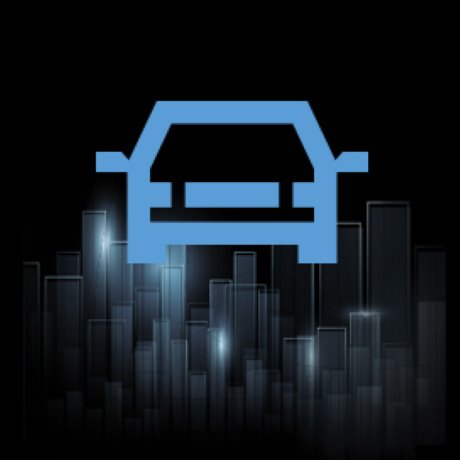After 23 years of sitting idle, it’s time for the province to raise fuel taxes in order to generate needed revenue for transportation improvements, a recently released report strongly recommends.
"Despite the controversy surrounding any proposed increase to pump prices, there is a strong case to be made to adjust fuel tax rates," says author Harry Kitchen, a professor emeritus of economics at Trent University, in a statement.
The report, A Case for Increasing Provincial Fuel Taxes (on a Temporary Basis), calls for raising the provincial gasoline tax from 14.7 cents to 23 cents per litre, an 8.3-cent hike, in 2015 and indexed by the rate of inflation each year for the next five to seven years. Similarly, the diesel fuel tax should be raised from 14.3 cents to 22 cents per litre (7.7 cents) in 2015 and indexed after that for the same period of time.
"These tax rates would then be indexed annually to preserve buying power and, of course, would be dedicated to funding transportation infrastructure," Kitchen adds.
The two tax increases would generate revenues between $1.7 and $2.4 billion per year, or $14 billion over the next seven, the report states.
"The status quo doesn’t seem to be working. Property taxes increase with market value, why should fuel taxes be any different?" says Andy Manahan, executive director of the Residential and Civil Construction Alliance of Ontario (RCCAO).
The report was funded by the alliance and is a follow-up to one released by Kitchen and RCCAO, which pointed out factors such as more fuel-efficient and non-fuel vehicles will lead to declining gasoline tax revenues in the future.
"The revenues raised from Kitchen’s proposed tax increases would be dedicated for transportation infrastructure," Manahan explains. "This will have tremendous positive spinoffs. Studies have shown that for every dollar spent on infrastructure, there is a direct economic benefit of between $1.40 and $1.60. The taxes will also help to ease traffic congestion, which is estimated to cost the GTA up to $11 billion a year."
Ontario’s Ministry of Finance, however, hasn’t committed to anything based on the report.
"The Ministry of Finance is always interested in any ideas or suggestions from any group or individual," says spokesperson Scott Blodgett in an email. "However, the Ministry does not speculate on tax policy: in this case, policy surrounding the Gasoline Tax."
The report also notes fuel-tax revenues should be earmarked and suggests four key reasons why.
"First, this is consistent with the benefits-based principle of financing government services — those who use a service pay for it. Second, earmarking facilitates long-term planning after establishing a dependable revenue stream," it reads.
"Third, it can prevent the political abuse of funds — there is more accountability and transparency when there is a link between the revenues from a tax and the service funded by the tax. Fourth and most importantly, it boosts public support because people know where their taxes are being spent."
Manahan states with the province looking to spend $130 billion on public infrastructure over the next 10 years, specifically $31.5 billion for transit, transportation and other priority infrastructure, it’s important the revenue generated goes to the right place.
"There are going to be challenges in keeping that pipeline of funds intact because there is this deficit that the province needs to address. This (raising fuel taxes) will take some pressure off.
"The caveat is that the government has to spend money wisely," he explains. "It can’t go into general revenues otherwise there will be more negativity."
The provincial government should also plan to introduce some form of road pricing, the report recommends, and municipalities should take a look at parking levies.
"Compared to fuel taxes or other revenue sources, road and parking pricing would more effectively manage congestion, improve productivity, and generate funds for urban roads and public transit," it states.
"As road pricing and parking taxes are introduced, fuel taxes could be reduced and replaced by an effective and efficient form of a carbon tax like the one used in British Columbia."
Manahan says the High Occupancy Vehicle (HOV) lanes used for the Pan Am Games could be turned into High Occupancy Toll (HOT) lanes, but the Ministry of Transportation (MTO) has indicated it "isn’t going to do that right after the Games."
However, the gridlock and congestion experienced during the Games should be a "wakeup call," he adds. "It was just giving people an indication of what it’s going to be like if you don’t do something."
According to a statement from MTO Spokesperson Bob Nichols, a strategy is in the works.
"The ministry is bringing forward a strategy for developing High Occupancy Toll (HOT) lanes in the GTHA to supplement Moving Ontario Forward," he writes in an email.
"In support of this proposal, MTO is incorporating provisions for HOT lanes into current HOV expansion construction projects. These provisions include, among other things, underground duct work for power and communications cables.
"When evaluating HOT options, we are evaluating how well HOT lanes will help to manage traffic congestion and generate revenue."
Kitchen’s report has been sent various departments and politicians at Queen’s Park, Manahan says, with the hope that the recommendations will be taken into further consideration.



Recent Comments
comments for this post are closed